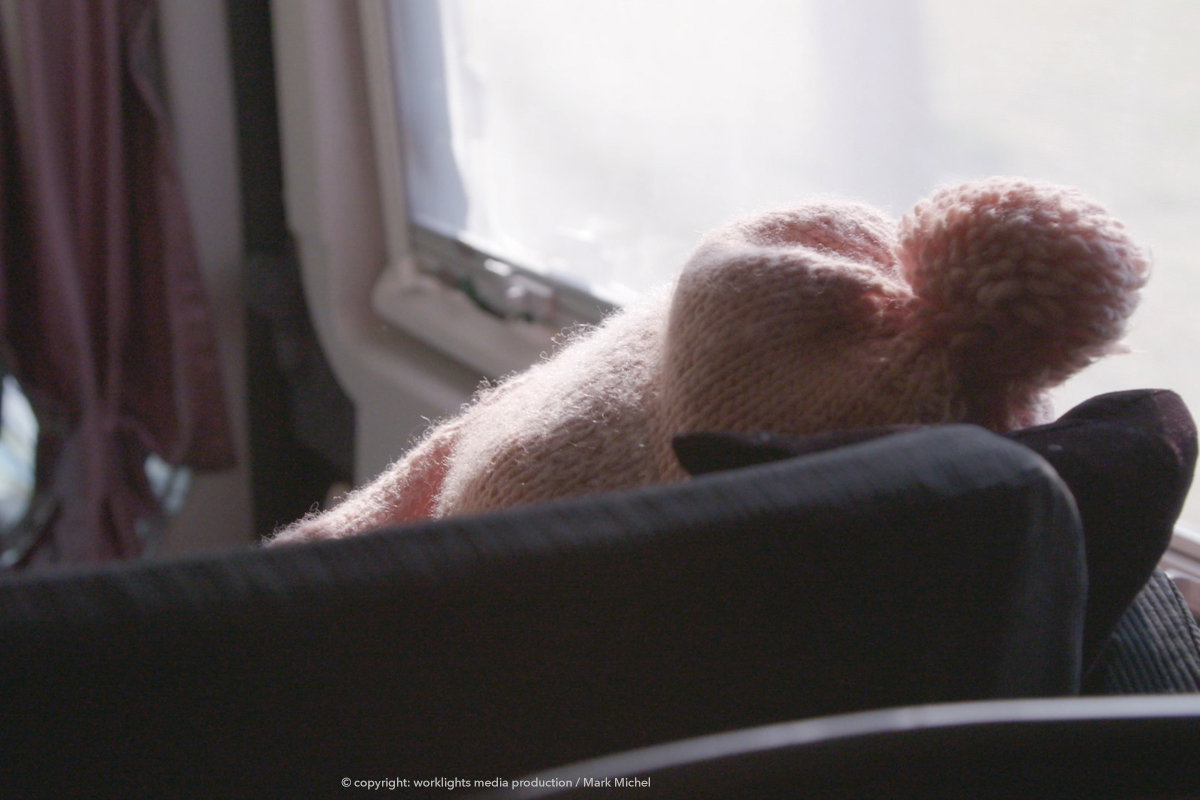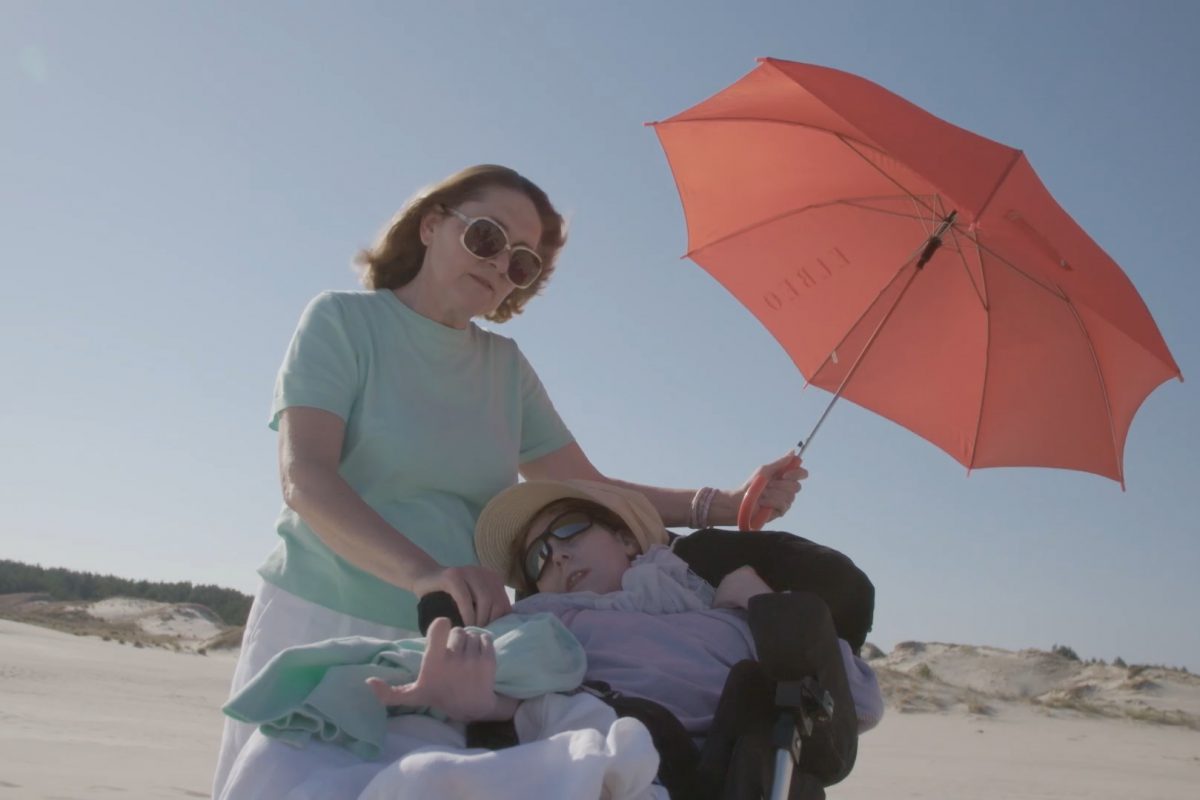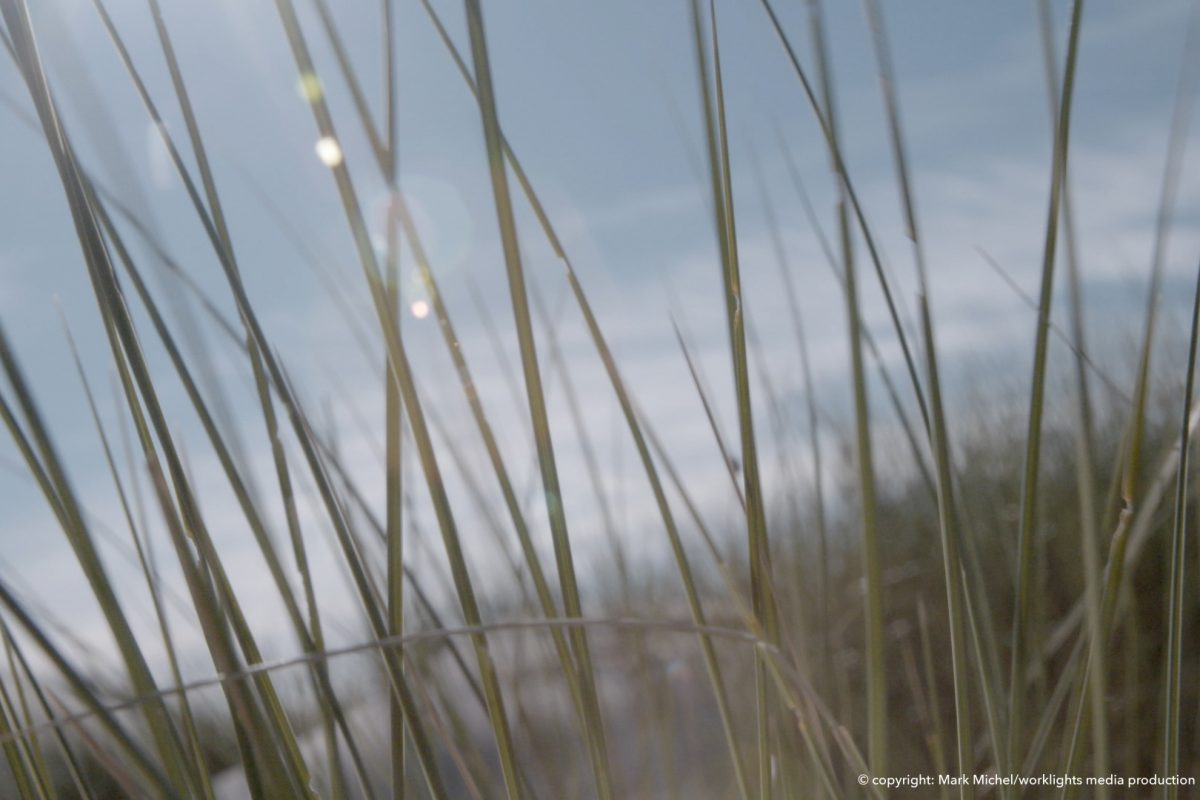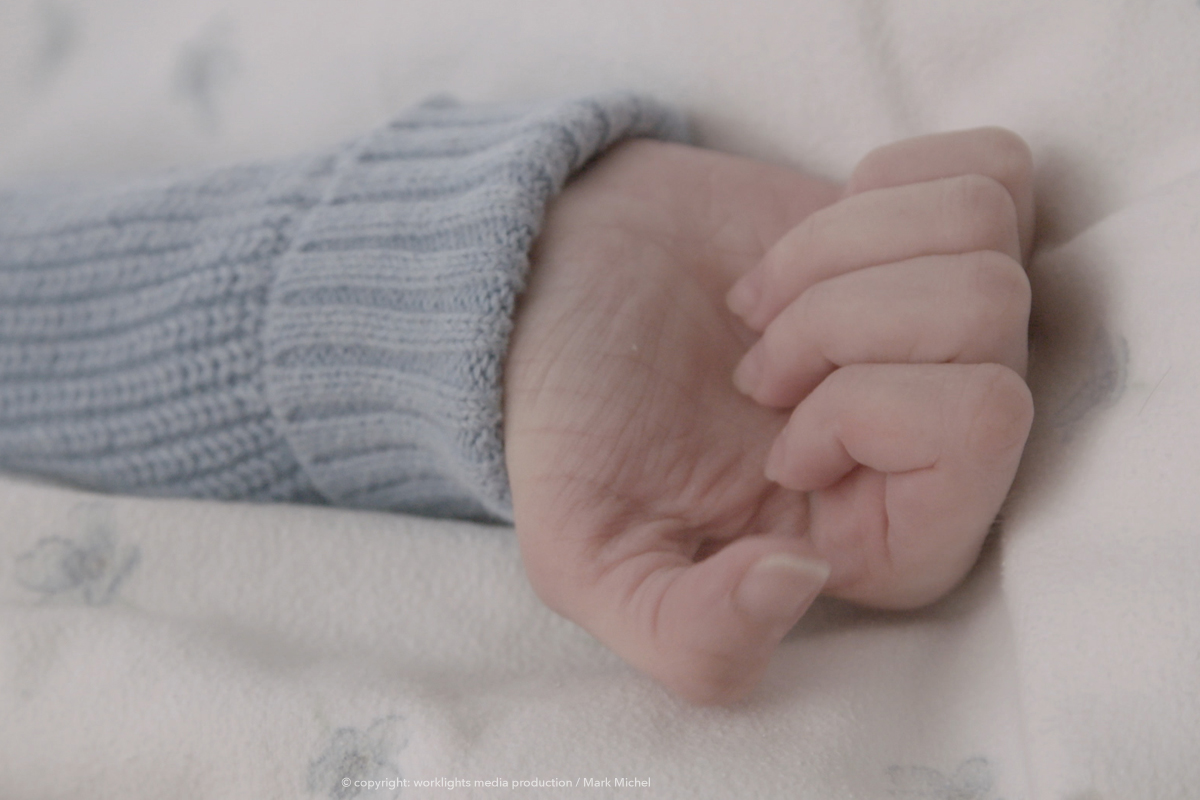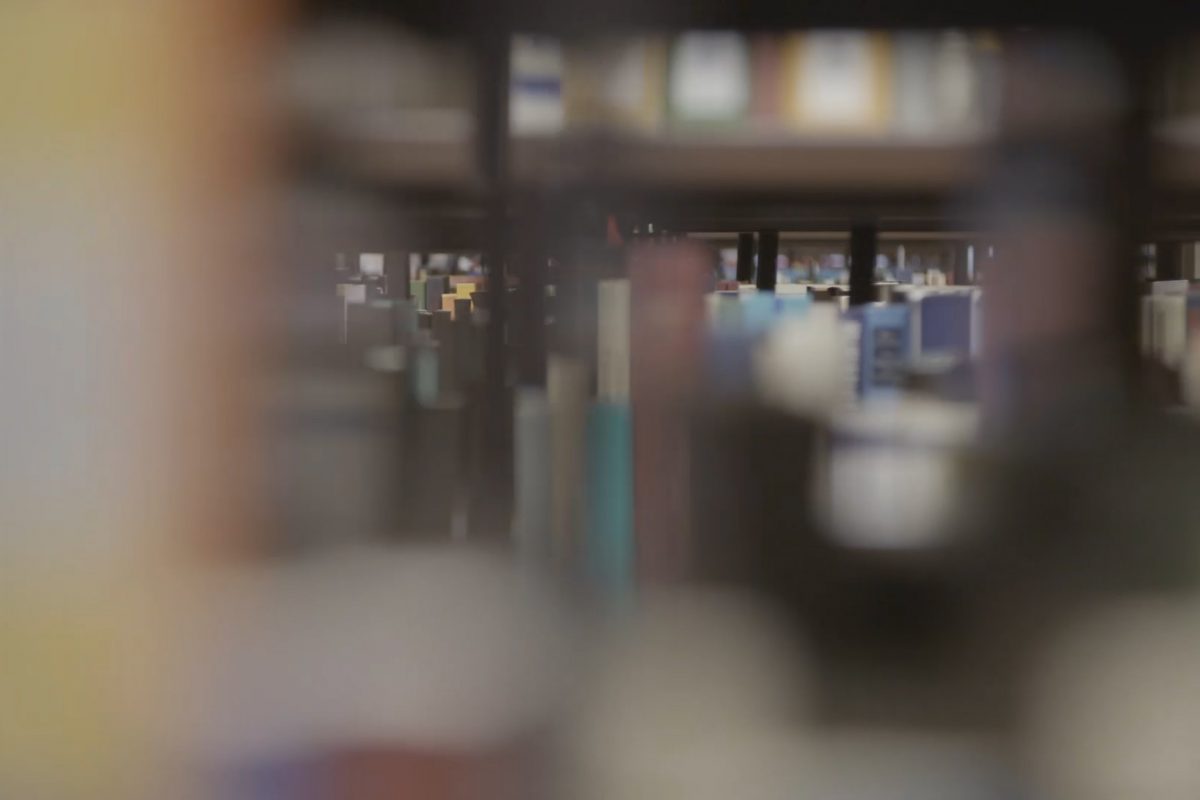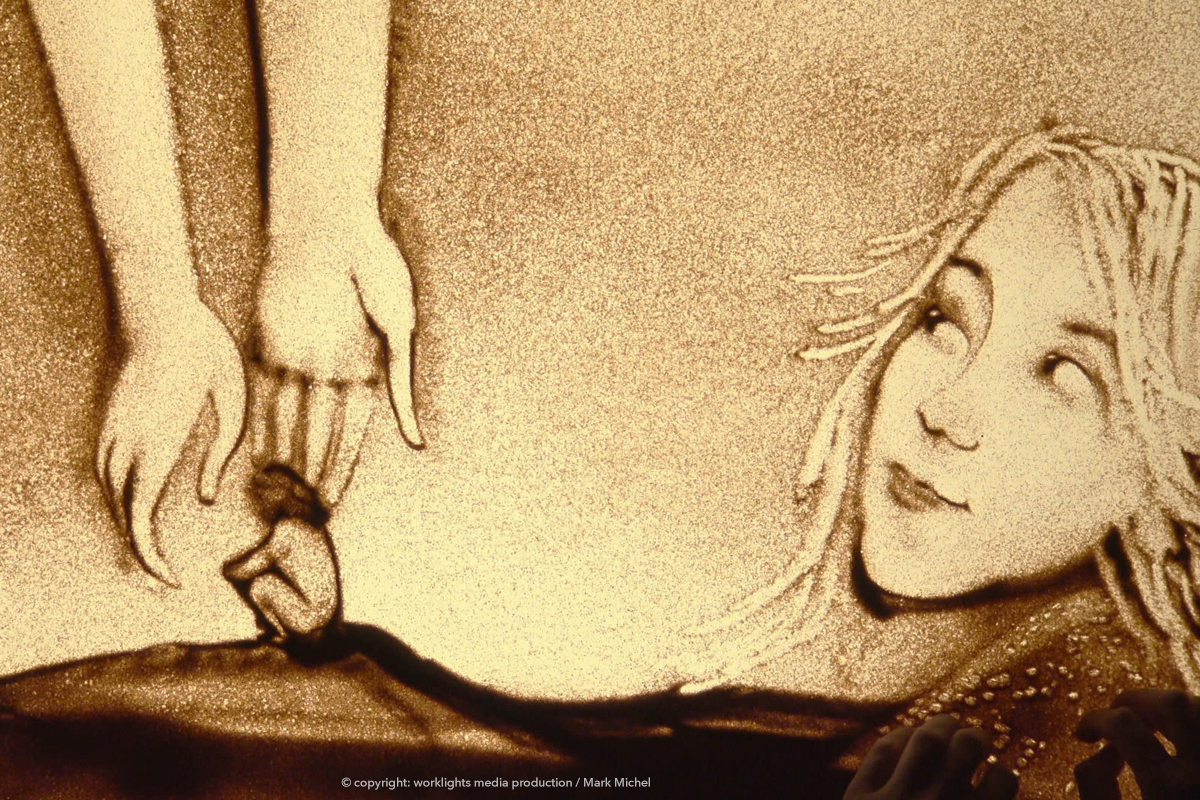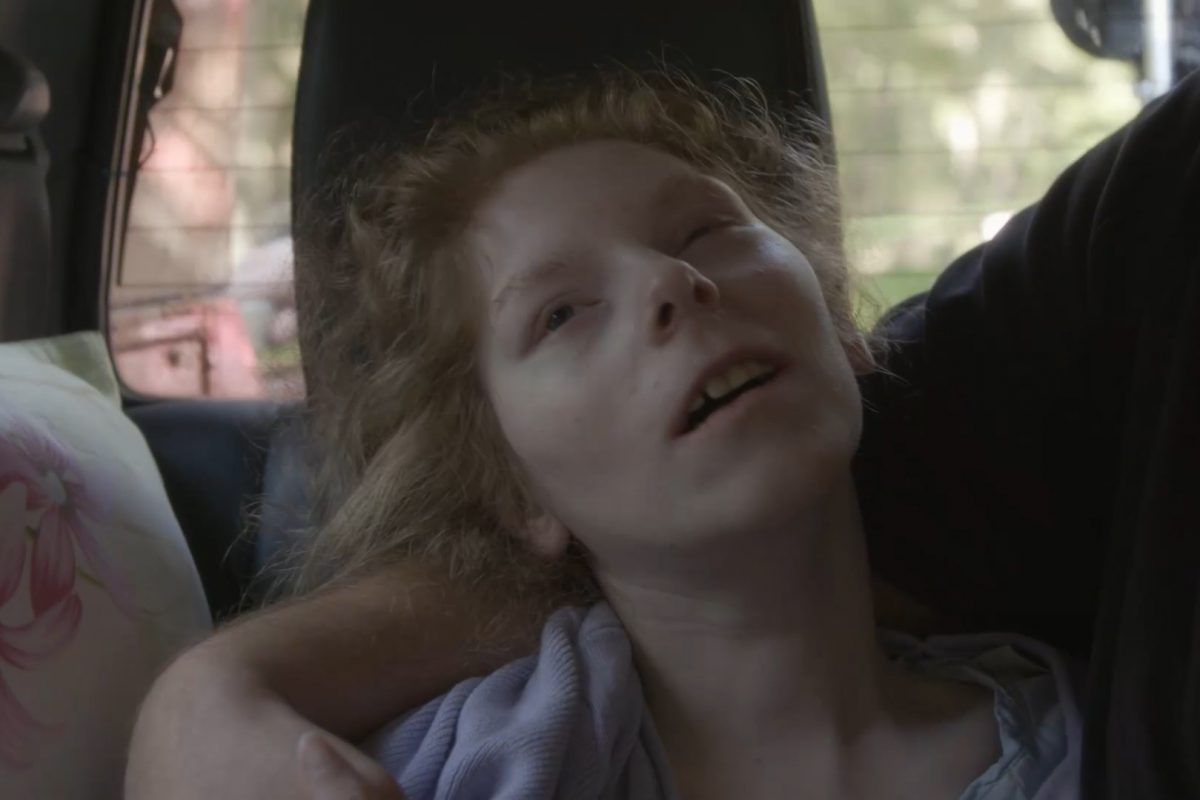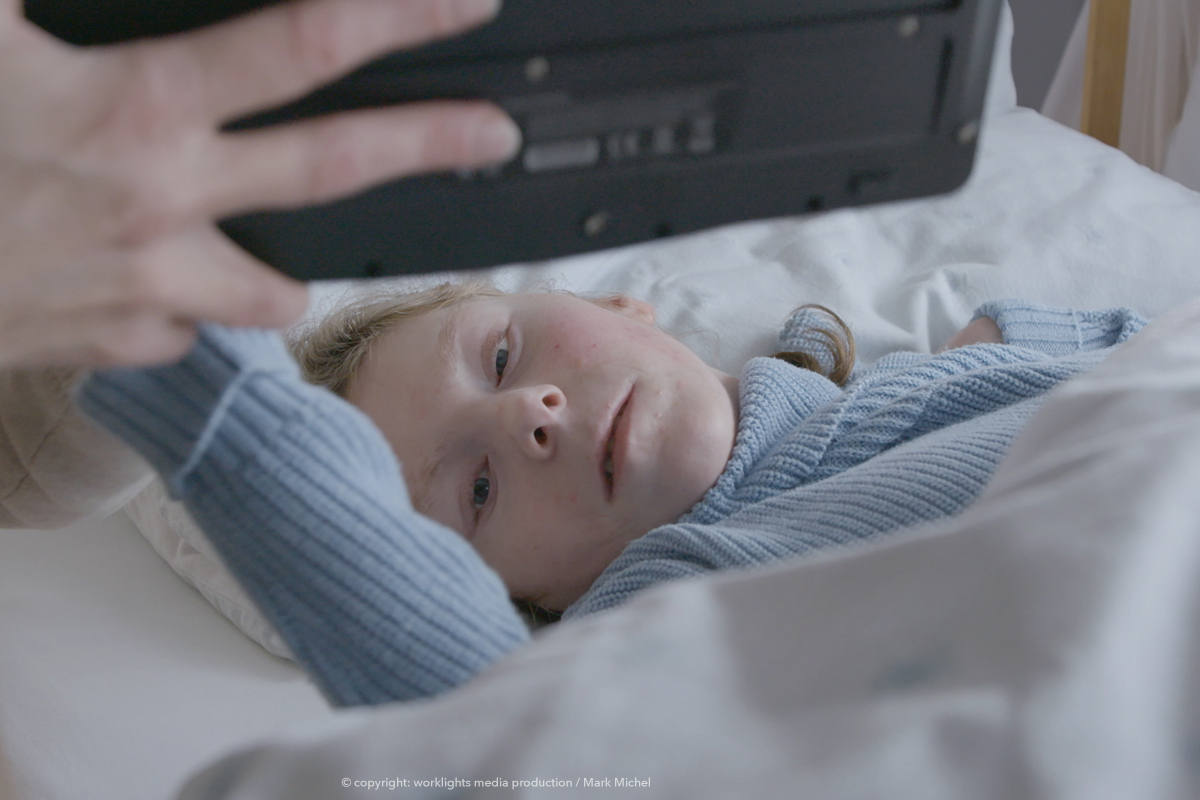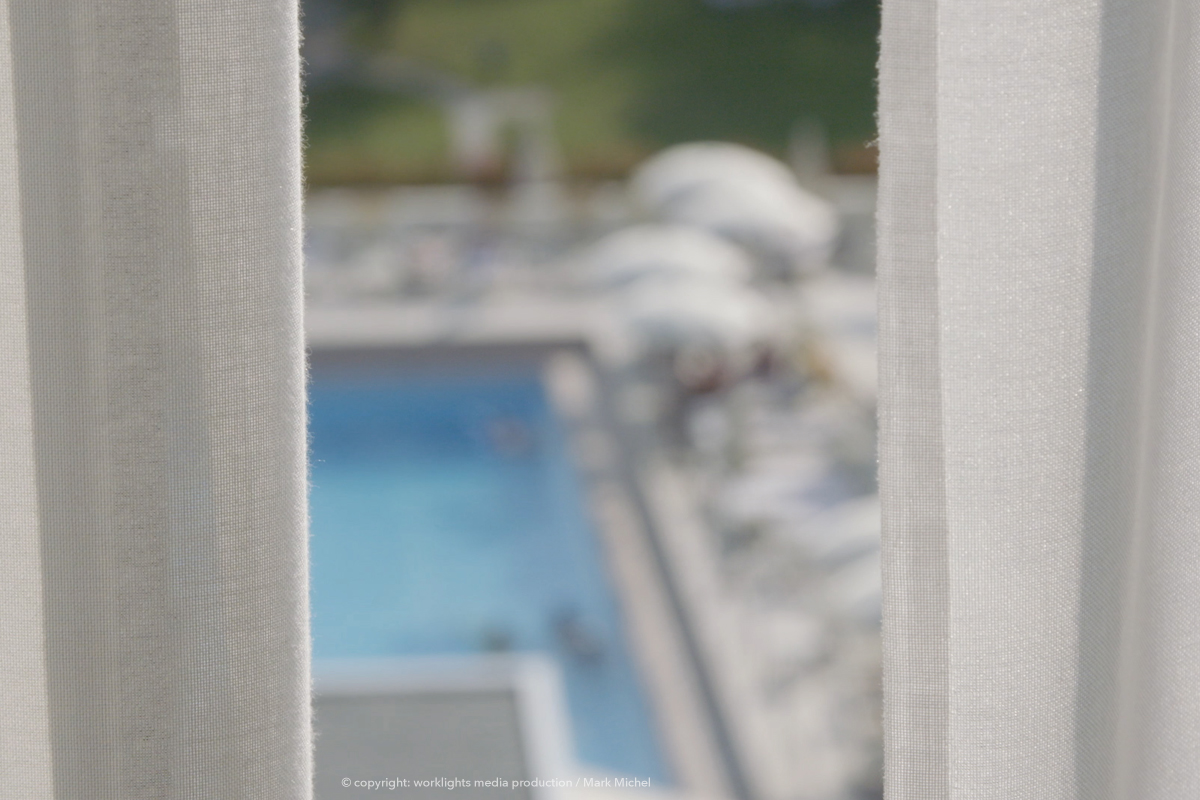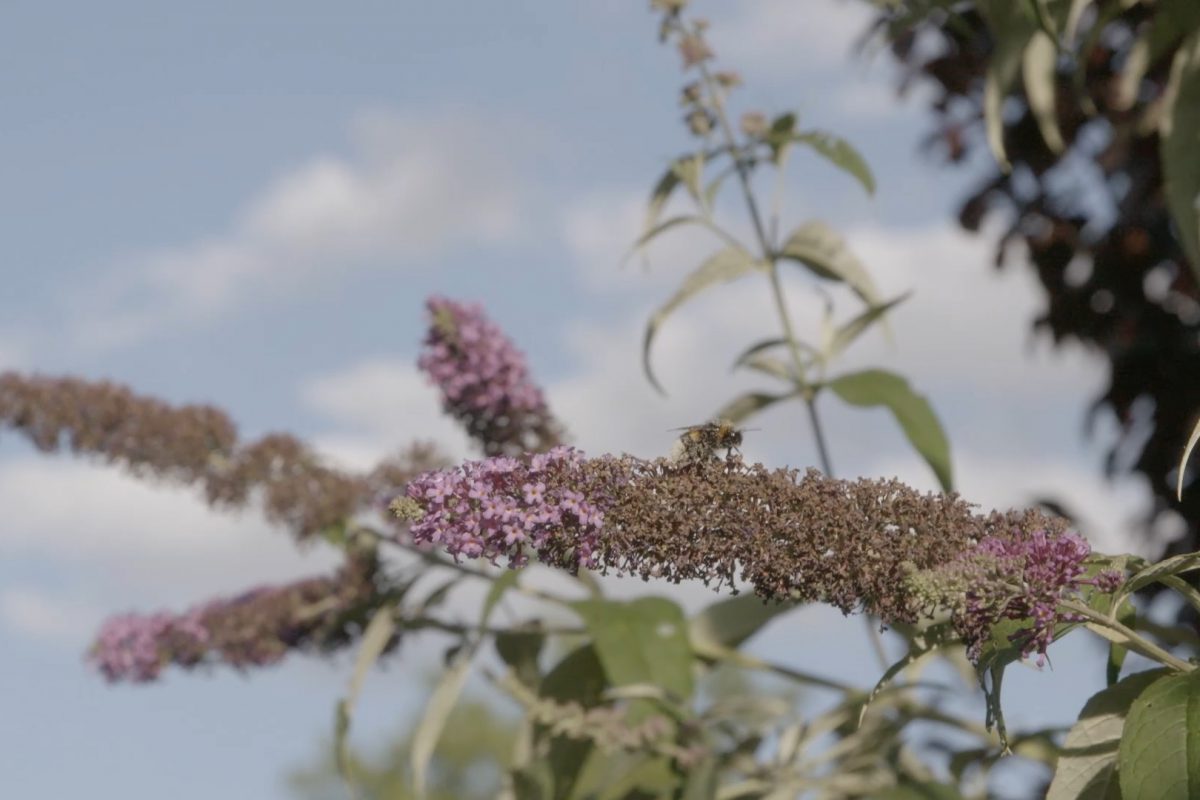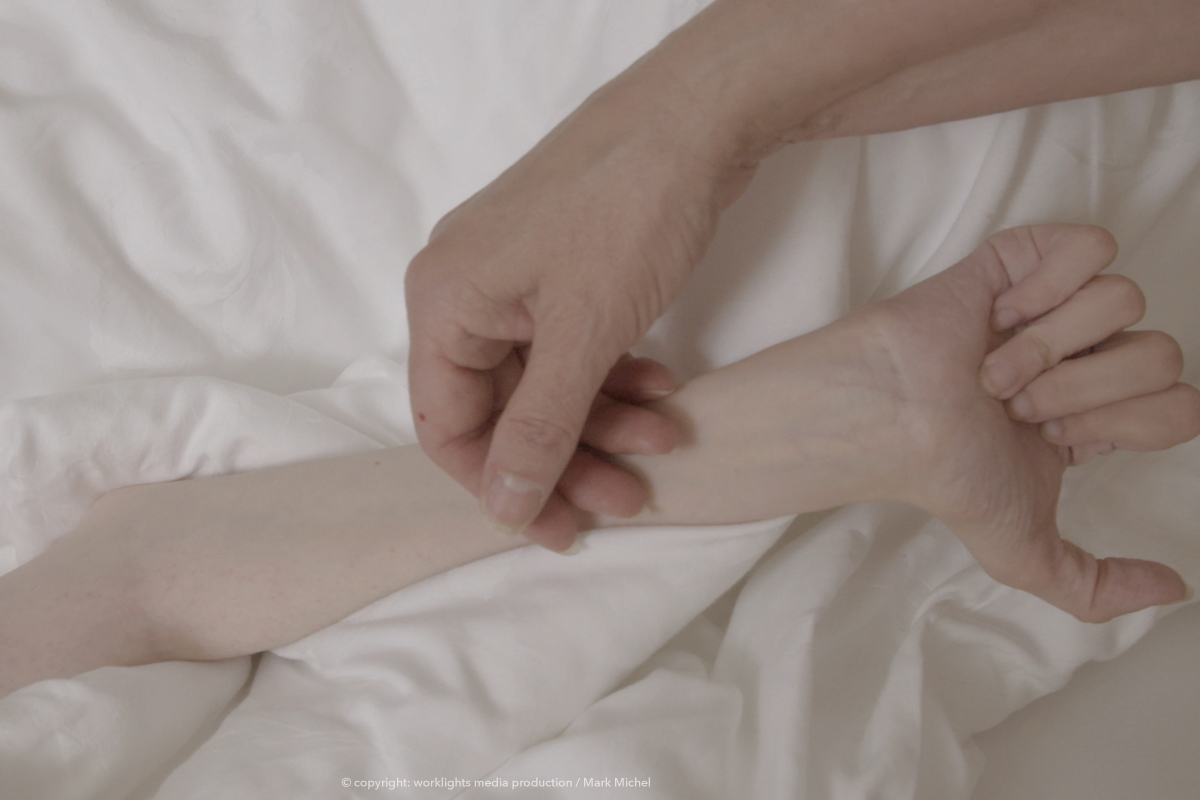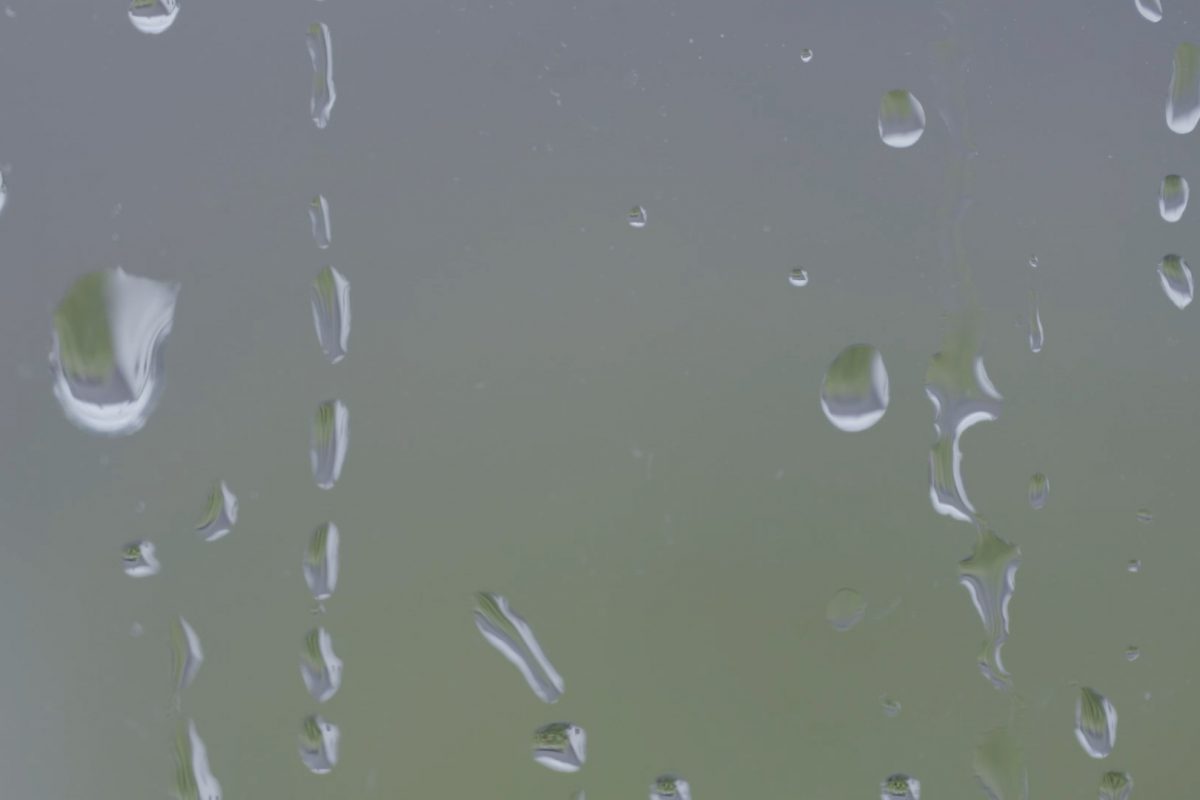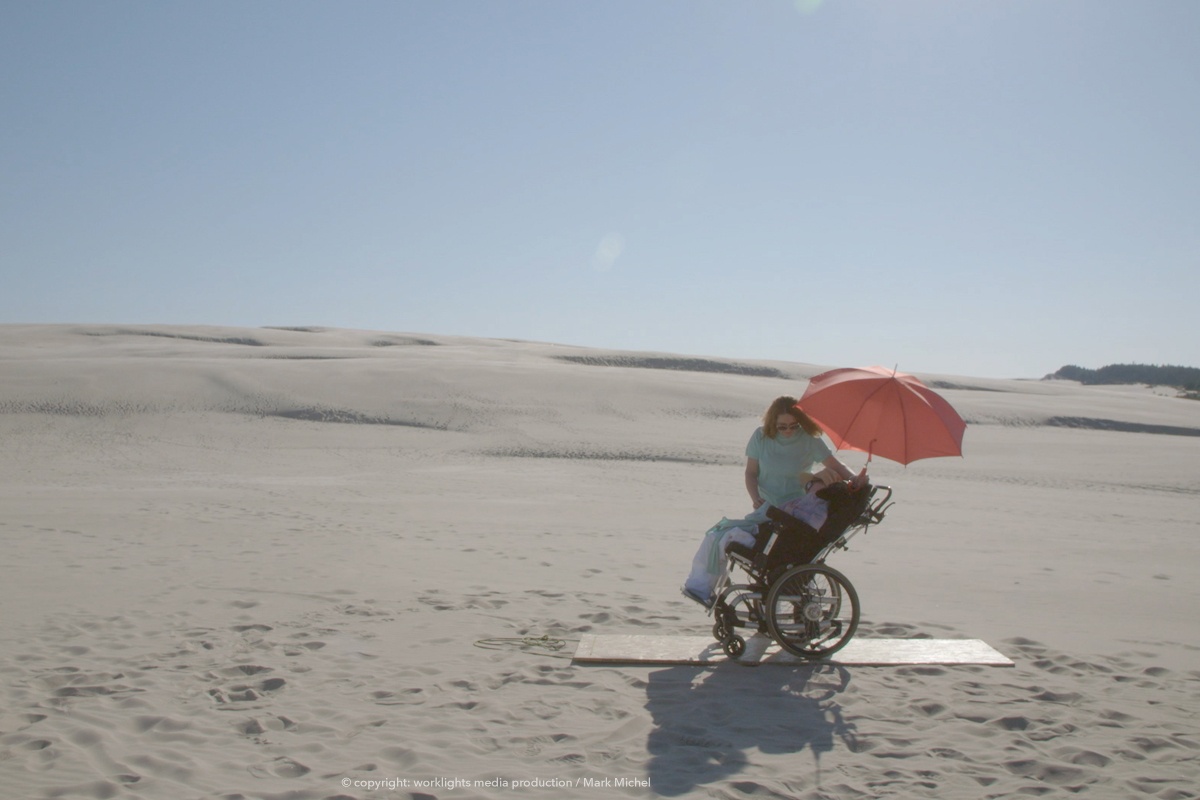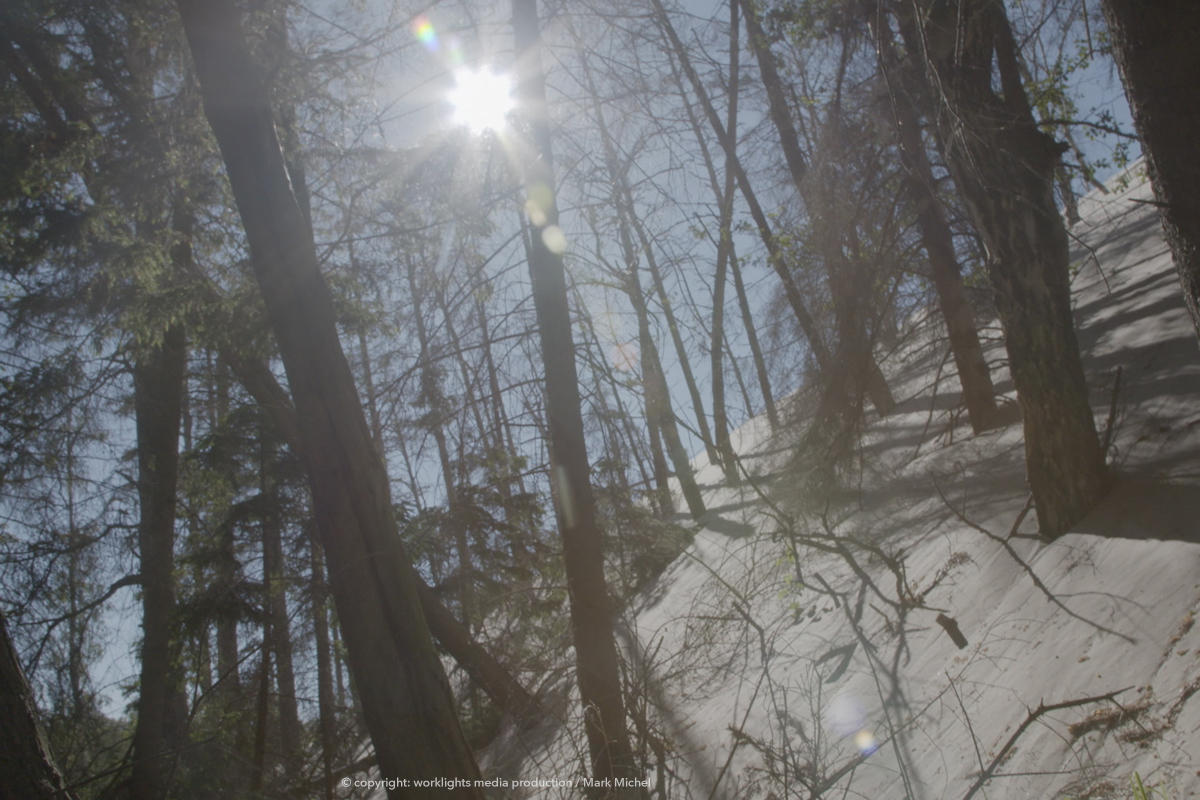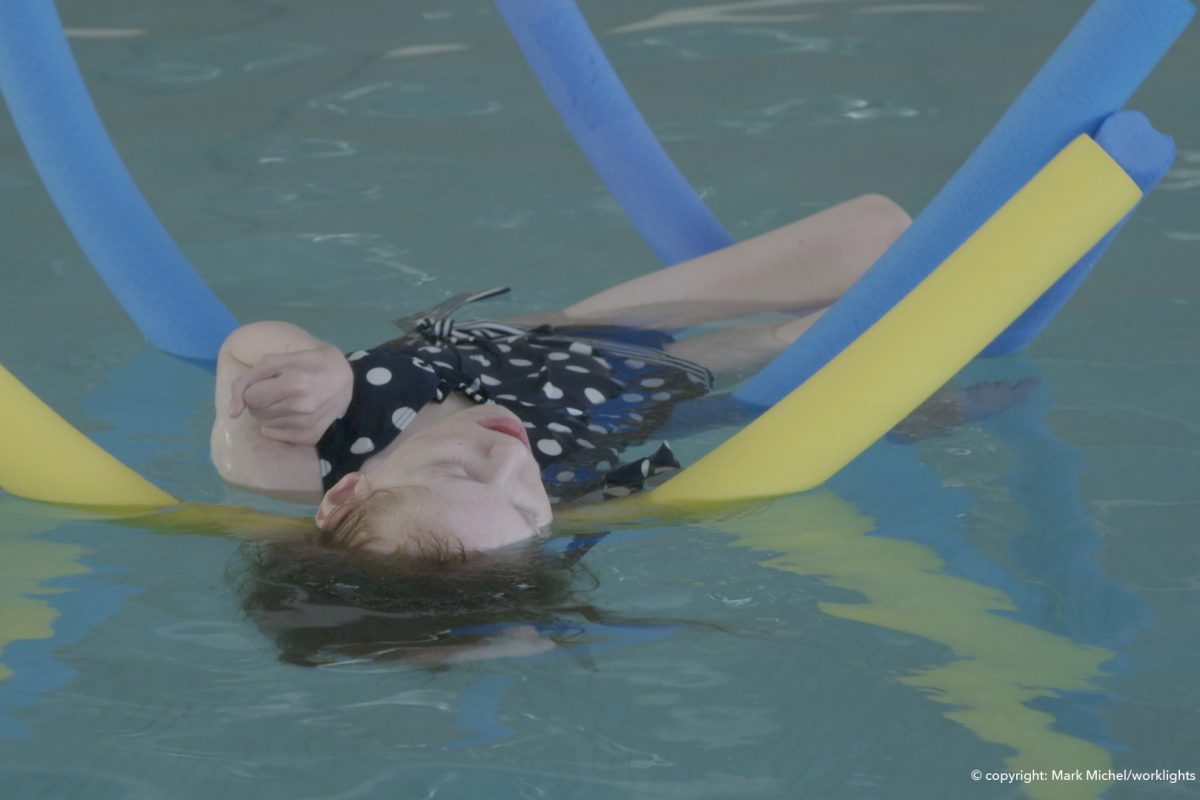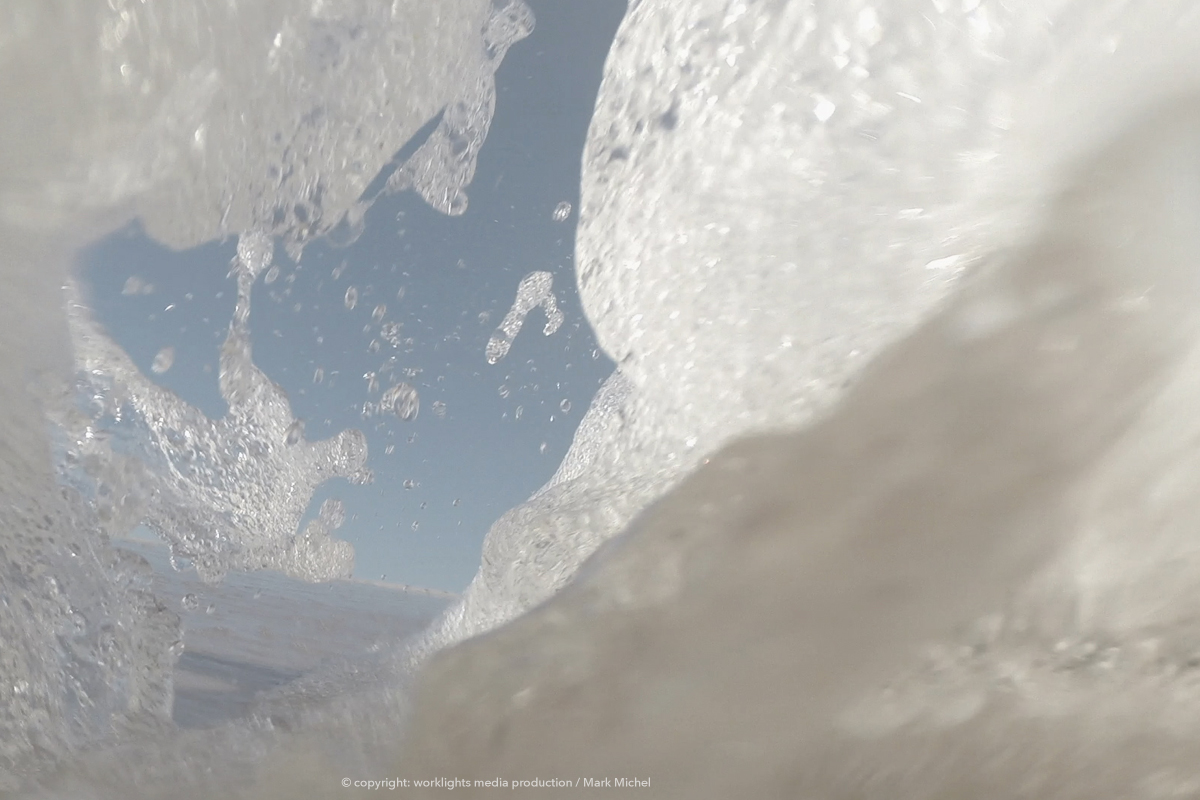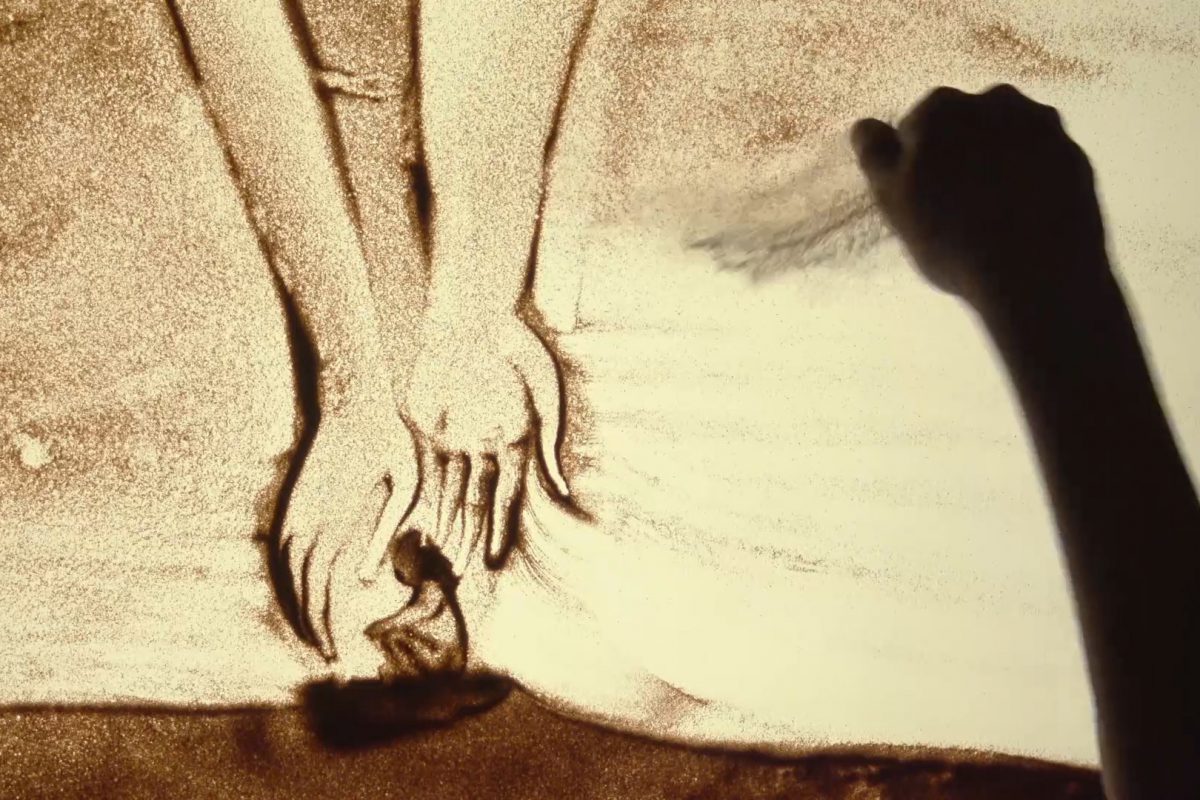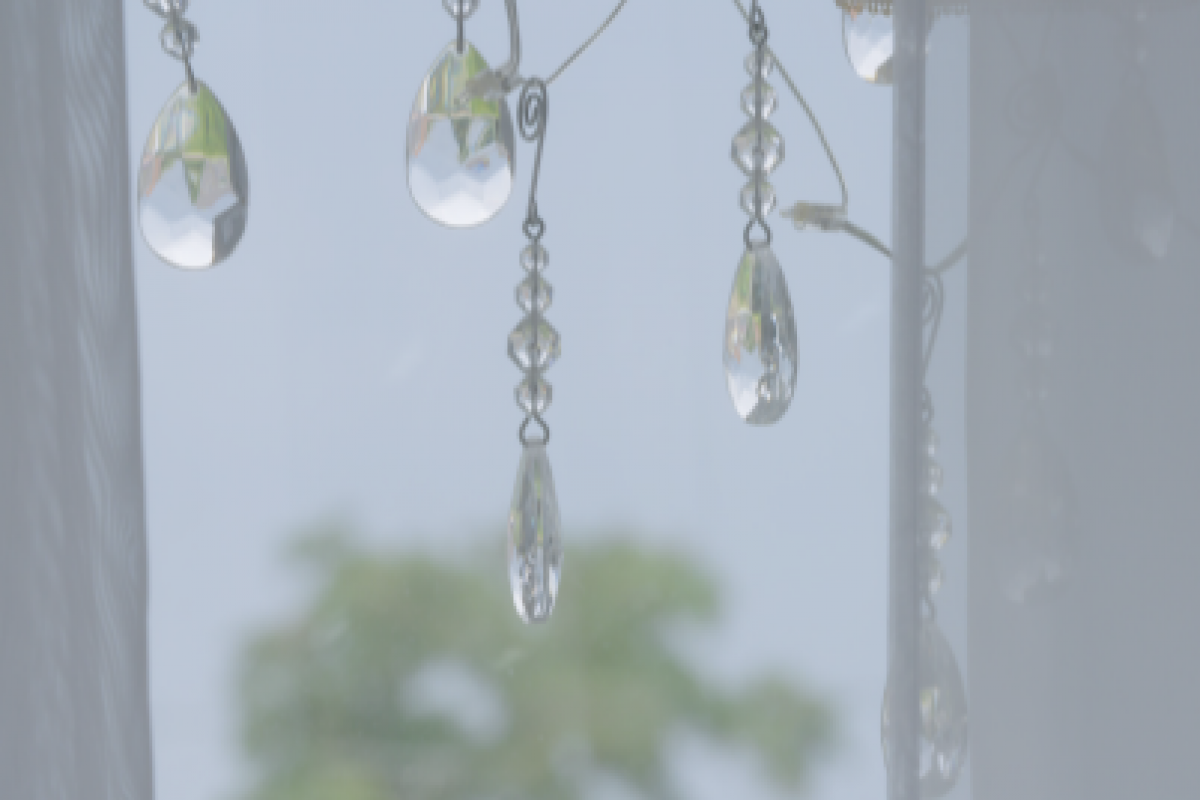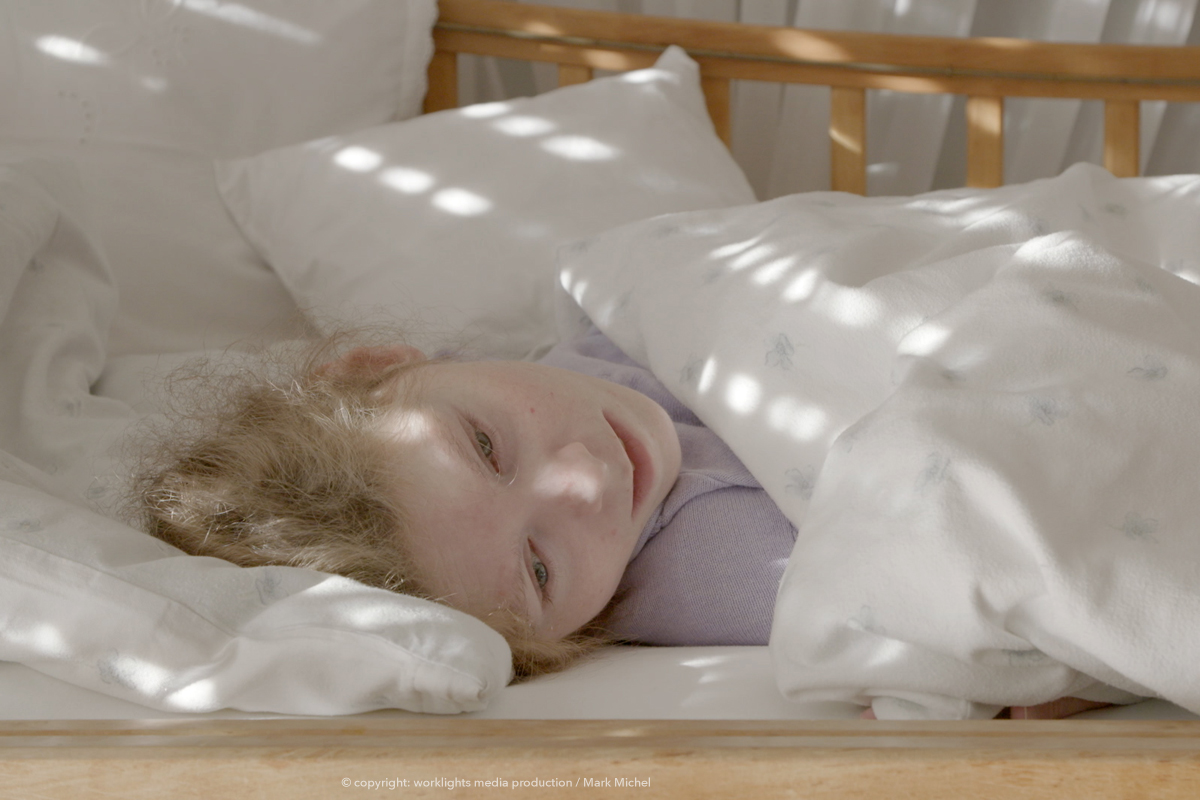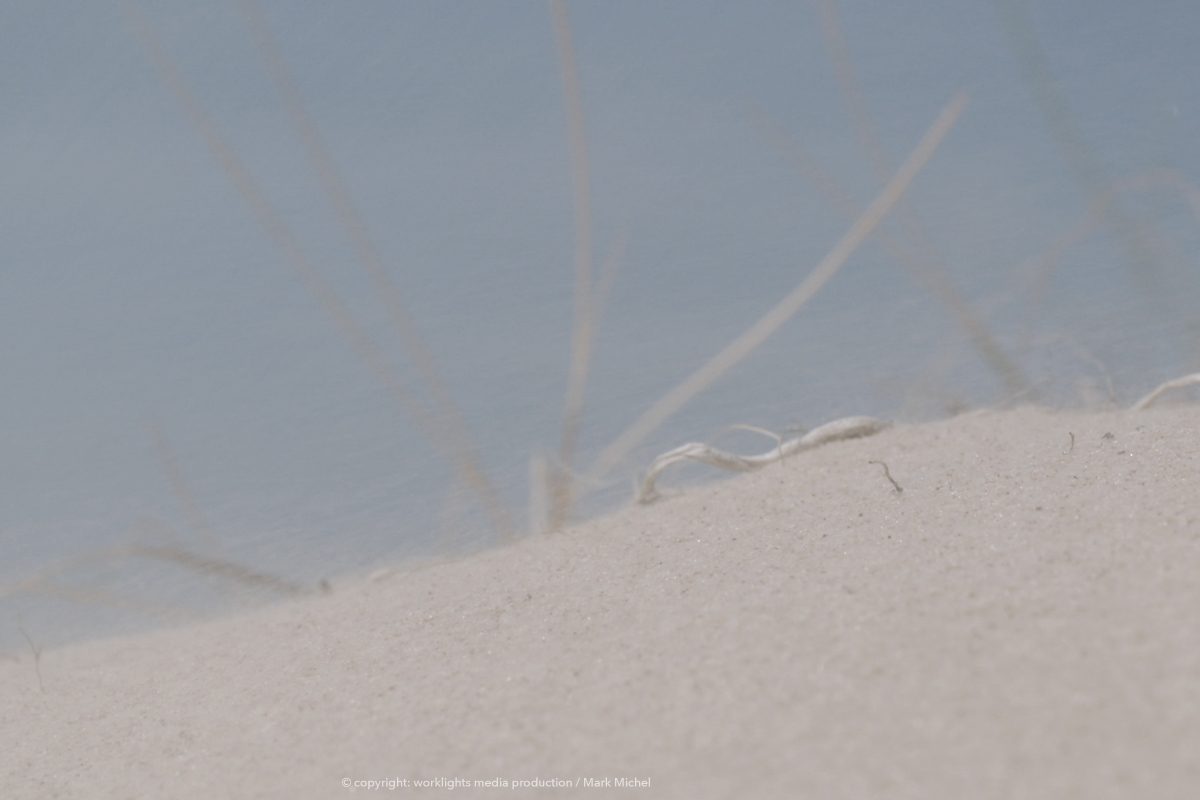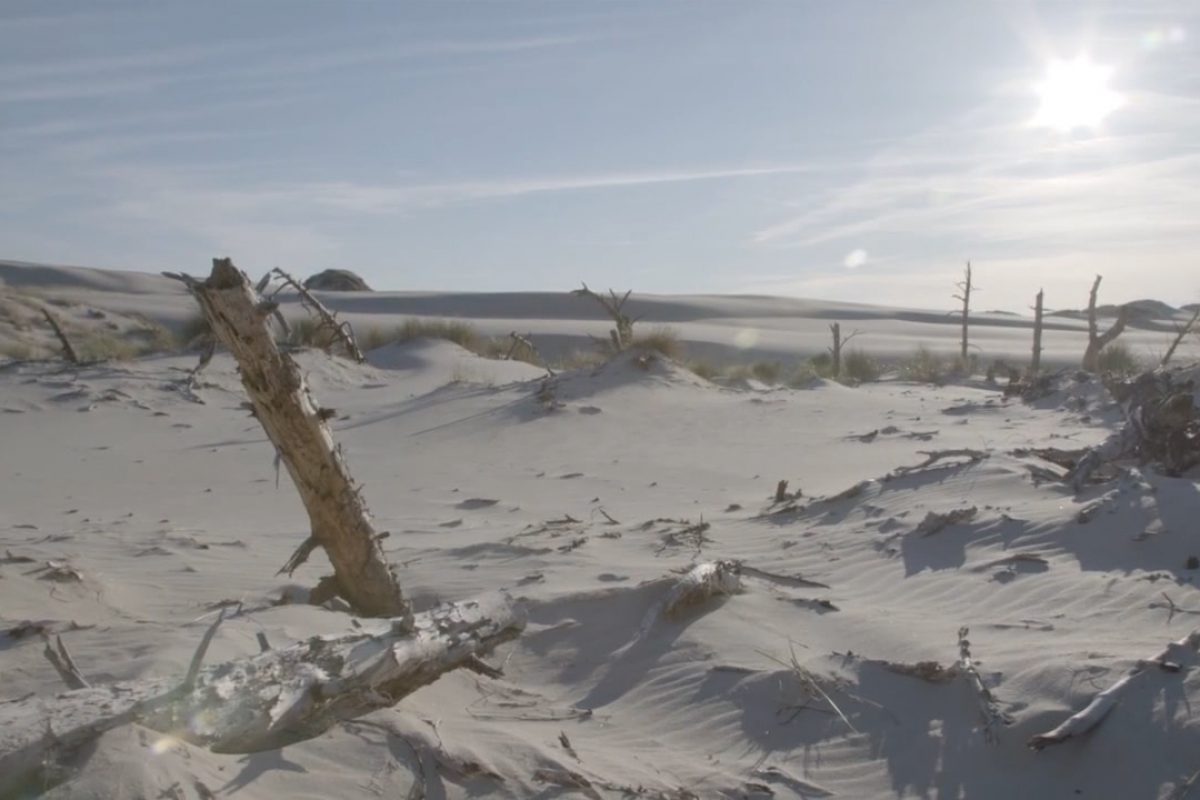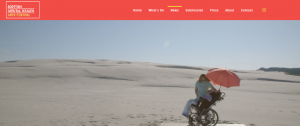
Talking Heads: Sandgirl Review
Veronika Raila lives in Germany. She can neither speak, nor walk, and she has been completely dependent on others to assist her with the entirety of her care needs since birth. Despite this, Sandgirl is not a story about the struggle and plight of a disabled woman with complex care needs, but a visually enchanting celebration of an artistic, creative and highly intelligent mind. Not only is Veronika intelligent, but she has a photographic memory and the ability to write both poetically and philosophically with an astonishing degree of talent.
Veronika, a cowriter of the documentary, illustrates her story using her own words, narrated through the voice of someone else. She describes her disability and her day-to-day life using evocative poetry that provides a fascinating insight into the creativity, writings and introspectiveness of a woman who was labelled at birth as having an IQ of zero. Akin to this, Veronika’s writings and poetry are accompanied by the sand art and animation of Anne Löper, who uniquely captured the emotion of Veronika’s story, and the beautiful cinematography of Ines Thomson.
The film follows Veronika and her family, in particular her main care giver and mother, during their everyday lives, from University, where Veronika studies German literature and catholic theology, to ancient monasteries in Italy where the family spends their annual holiday. Her mother, almost always by Veronika’s side, shares a deep, caring and supportive bond with her daughter. One of the few moments of pity or sadness within the film is when Veronika’s mother, before understanding her daughter’s potential, describes the guilt she felt for almost giving up on her child. Veronika herself displays very little anguish towards her circumstances, instead she wholeheartedly embraces it, which she sums up succinctly by stating “I love my life because it is mine”.
Sandgirl provides a colourful, poetic and mesmerising insight into the mind and life of an incredible young thinker. The documentary itself focuses more on the talent and creative works of Veronika than it does on her physical impairment. Sandgirl should be celebrated for taking an, unfortunately, uncommon approach in regard to the depiction of people with mental health issues and/or disabilities. This intriguing documentary not only investigates the depth of Veronika’s mind, but also questions common discourses about the importance of able-bodiedness and speech for communication and connection.
by Lisa Rashleigh
Lisa is a 25-year-old Australian living in Glasgow. She has a background in youth work and homelessness, and is currently working as an independent advocate. Lisa is passionate about both mental health and the Glaswegian music and art scene. Follow her on Instagram @bin_leisel or on Twitter @LisaRashleigh.
